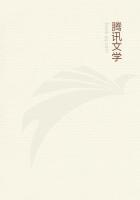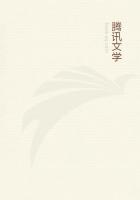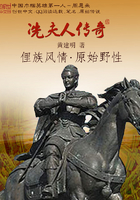Throughout history the man without fear has been idolized. The hero is courageous, that he must be; the coward is despised, whatever good may be in him. Consequently, there is in most men a fear of showing fear; and pride, self-respect, often urge men on when they really fear. This pride is greater in some races than others--in the Indian and the Anglo-Saxon--but the Oriental does not think it wrong to be afraid. In the Great War this fear of showing fear played a great role in producing shell shock, in that men shrank from actual cowardice but easily developed neuroses which carried them from the fighting line.
There is this to add to this little sketch of fear: it turns easily to anger for both are responses to a threat. I remember in my boyhood being mortally afraid of a larger boy who one day chased me, caught me and started to "beat me up." Before I knew it, the fear had gone and I was fighting him with such fierceness and fury that in amazement he ran away. So a rat, cornered, becomes fierce and blood-thirsty and there is always the danger, in the use of fear as a weapon, that it become changed quite readily into the fighting spirit.
7. Anger is a primitive reaction and is the backbone of the fighting spirit. It tends to displace fear, though it may be combined with it, in one of the most unhappy --because helpless--mental states. Anger in its commonest form is a violent energizer and in the stiffened muscles, the set jaw, bared teeth, and the forward-thrust head and arms one sees the animal prepared to fight. Anger is aroused at any obstruction, any threat or injury, from physical violences to the so-called "slight." In fact, it is the intent of the opponent as understood that makes up the stimulus to anger in the human being. We forgive a blow if it is accidental, but even a touch, if in malice or in contempt, arouses a fierce reaction.
We call becoming angry too readily "losing the temper," and there is a type known as the irascible in whom anger is the readiest emotion. The bluff English squire, the man in authority, is this type, and his anger lasts. In its lesser form anger becomes irritability, a reaction common to the neurotic and the weak.
When anger is not frank, but manifests itself by a lowered brow and sidelong look, we speak of sullenness or surliness. The sullen or surly person, chronically ill-tempered and hostile, is regarded as unsocial and dangerous, whereas the most lovable persons are quick to anger and quick to repent.
As a man's anger, so is he. There are some whose anger is always a reaction against interference with their comfort, their dignity, their property and their will; it never by any chance is aroused by the wrongs of others. Usually, however, these folk camouflage their motive. "It's the principle of the thing I object to," is its commonest social disguise, which sometimes successfully hides the real motive from the egoist himself.
Wherever wills and purposes meet in conflict, there anger, or its offshoot, contempt, is present, and the more egoistic one is, the more egoistic the sources of anger.
The explosiveness of the anger will depend on the power of inhibition and the power of the intelligence, as well as on the strength of the opponent. There are enough whose temper is uncontrolled in the presence of the weak who manage to be quite calm in the presence of the strong. I believe there is much less difference amongst races in this respect than we suspect, and there is more in tradition and training. There was a time when it was perfectly proper for a gentleman to lose his temper, but now that it is held "bad form," most gentlemen manage to control it.
If it is common for men to become angry at ego-injury, there are in this world, as its leaven of reform, noble spirits who become angry at the wrongs of others. The world owes its progress to those whose anger, sustained and intellectualized, becomes the power behind reform; to those like Abraham Lincoln, who vowed to destroy slavery because he saw a slave sold down the river; to the Pinels, outraged by the treatment of the insane; to the sturdy "Indignant Citizen," who writes to newspapers about what "is none of his business," but who is too angry to keep still, and whose anger makes public opinion. Whether anger is useful or not depends upon its cause and the methods it employs. Righteous anger, whether against one's own wrongs or the wrongs of others, is the hall-mark of the brave and noble spirit; mean, egoistic anger is a great world danger, born of prejudice and egoism. A violent-tempered child may be such because he is outraged by wrong; if so, teach him control but do not tell him in modern wishy-washy fashion that "one must never get angry." Control it, intellectualize it, do not permit it to destroy effectiveness, as it is prone to do; but it cannot be eliminated without endangering personality.
Fear and anger have this in common: whenever the controlling energy of the mind goes, as in illness, fatigue or early mental disease, they become more prominent and uncontrolled. This cannot be overemphasized. When a man (or woman) finds himself continually getting apprehensive and irritable, then it is the time to ask, "What's the matter with me," and to get expert opinion on the subject.
These two emotions are in more need of rationalizing and intelligent control than the other emotions, for they are more explosive. Certainly of anger it is truly said that "He who is master of himself is greater than he who taketh a city." The angry man is disliked, he arouses unpleasant feelings, he is unpopular and a nuisance and a danger in the view of his fellows.
The underlying idea underneath courtesy and social regulations is to avoid anger and humiliation. Controversial subjects are avoided, and one must not brag or display concern because these things cause anger and disgust. Politeness and tact are essential to turn away wrath, to avoid that ego injury that brings anger.

